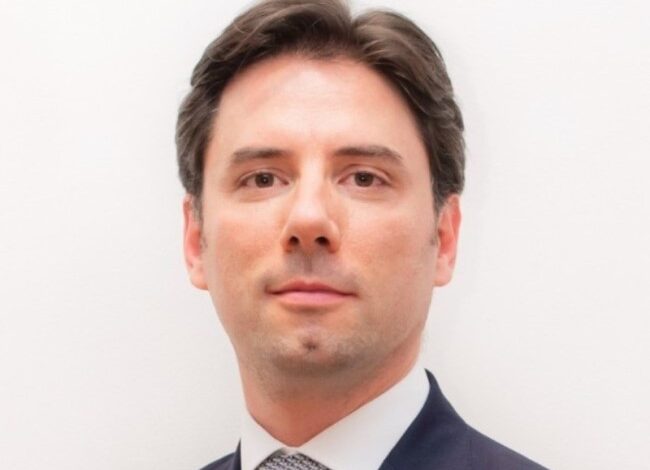Andrea Filtri: A Leading Voice in Financial Research and Regulatory Expertise

Andrea Filtri is a prominent figure in the European financial sector, known for his extensive expertise in banking, financial institutions, and regulatory frameworks. As the Managing Director and Head of Mediobanca Research, Filtri leads one of the most respected equity and credit research teams focused on the financial industry, providing critical insights on banks, insurance companies, and diversified financial services across Europe. His work, frequently cited by major financial publications such as the Financial Times and Wall Street Journal, demonstrates a unique blend of deep regulatory knowledge, strategic advisory skills, and thought leadership.
Early Life and Education of Andrea Filtri
Andrea Filtri’s educational background laid a strong foundation for his career in finance. He holds a Master of Science degree in Economics from the prestigious London School of Economics and Political Science (LSE), one of the world’s foremost institutions for economics and political studies. At LSE, Filtri demonstrated academic excellence and was actively engaged as an Economics Student Representative, a role that showcases his early leadership potential.
Following his MSc, Filtri pursued doctoral studies in Economics at the University of Turin, Italy. Although he did not complete the PhD program due to professional opportunities, he successfully completed all exams and coursework, reflecting his deep commitment to academic rigour. In addition, he undertook an advanced executive course at London Business School in High-Performance People Skills for Leaders, specialising in emotional intelligence, negotiation, and people management. This blend of academic training and leadership development has been instrumental in shaping Filtri’s approach to managing large teams and engaging with senior stakeholders across the financial industry.
Professional Journey: From Analyst to Managing Director
Andrea Filtri began his professional career in investment banking and equity research, covering Italian and French banks at Merrill Lynch from 2005 to 2009. His work involved detailed analysis of European banks, gaining invaluable experience in equity markets and financial instruments. Filtri then joined Mediobanca in 2010, where he played a pivotal role in establishing and expanding the European Banks research team based in London.
Over the years, Filtri climbed the ranks within Mediobanca, becoming Co-Head of European Equity Research in 2016 and, eventually, Managing Director and Head of Mediobanca Research in early 2025. Today, he oversees a team of more than 30 analysts dedicated to over 200 issuers across the financial sector. His expertise encompasses a broad range of areas, including banking, insurance, diversified financials, and cutting-edge topics such as digital transformation, digital currencies, and Central Bank Digital Currencies (CBDCs).
Filtri’s role extends beyond research leadership; he serves as a strategic advisor to Mediobanca’s top management and actively engages with CEOs, CFOs, and Chairpersons of major companies and institutions. His insights into EU policy, financial regulation, and global geopolitics have made him a sought-after lecturer at various universities, bridging the gap between academic theory and market practice.
Andrea Filtri and the Danish Compromise: Unlocking Regulatory Arbitrage
One of the most notable aspects of Andrea Filtri’s recent work is his advocacy and analysis surrounding the “Danish Compromise,” a key regulatory provision impacting European banks that operate insurance businesses, often referred to as bancassurance models.
What is the Danish Compromise?
The Danish Compromise is a regulatory framework within the European Union’s banking regulations that allows banks owning insurance companies to apply a more favourable capital treatment to their insurance holdings. Traditionally, banks were required to fully deduct their insurance subsidiaries from their capital calculations, which increased their capital charges and limited their financial flexibility. The Danish Compromise permits these banks to risk-weight insurance assets instead of deducting them fully, thereby reducing the capital requirement and improving capital efficiency.
This regulatory approach originated over a decade ago during Denmark’s presidency of the EU Council, hence the name. Its purpose was to encourage synergy between banking and insurance activities, facilitating bancassurance models that combine banking and insurance services under one corporate umbrella.
Andrea Filtri’s Contribution and Strategic Insights
Andrea Filtri has been instrumental in identifying and communicating the significance of the Danish Compromise for European banks. He was among the first to spot the regulatory arbitrage opportunity presented by this framework and how it could stimulate mergers and acquisitions (M&A) activity within the financial sector.
Filtri has highlighted examples such as BNP Paribas’s acquisition of AXA Investment Managers, where the application of the Danish Compromise substantially reduced the capital impact of the deal. According to his calculations, the acquisition would have resulted in a capital charge of 65 basis points without the Danish Compromise, but only 25 basis points with it—a difference that profoundly influences deal feasibility and financial strategy.
Further extending this concept, Filtri introduced the idea of “Danish Compromise Squared” (DC²), where banks leverage their insurance subsidiaries not only for traditional bancassurance benefits but also to acquire asset and wealth management firms. This strategy aims to maximise regulatory capital efficiency and create a more consolidated financial ecosystem, potentially triggering a wave of strategic consolidations across European banks and insurers.
Regulatory Developments and Market Impact
The European Parliament’s decision in April 2024 to make the Danish Compromise permanent underscores the importance and longevity of this regulatory provision. The European Central Bank (ECB) has indicated that it will assess applications of the Danish Compromise on a case-by-case basis, ensuring prudent supervision while encouraging innovation and integration in financial services.
Filtri’s analysis points to the Danish Compromise as a pivotal driver behind recent M&A trends in European banking and insurance sectors. Banks operating within this regulatory framework enjoy enhanced capital flexibility, enabling them to pursue growth strategies more aggressively while managing risk effectively.
Expertise Beyond Regulation: Digital Transformation and Geopolitics
Andrea Filtri’s expertise is not confined solely to regulatory arbitrage and bancassurance. He is also deeply engaged in the digital transformation of the financial industry. His research covers digital currency innovations, the rise of Central Bank Digital Currencies (CBDCs), and the broader geopolitical ramifications of these technological changes.
Filtri frequently lectures on these subjects, combining rigorous academic knowledge with practical investment insights. He emphasises how digital currencies could reshape financial systems, affect monetary policies, and introduce new regulatory challenges. His work helps investors and financial institutions navigate this complex landscape, balancing opportunities and risks.
Leadership and Influence in the Financial Sector
As the head of a major research unit at Mediobanca, Andrea Filtri exemplifies strong leadership, managing a large team of analysts while fostering collaboration across business units such as private banking, asset management, and markets. His role involves transforming research output into actionable investment products, making Mediobanca Research a strategic partner within the bank’s wider network.
Filtri’s communication skills, strategic vision, and regulatory expertise have earned him recognition among peers, investors, and policymakers alike. His commentary and analysis regularly appear in leading financial media, and he maintains active relationships with regulators, governments, and top executives across Europe.
Conclusion
Andrea Filtri stands out as a leading financial analyst and research executive with a profound understanding of banking, insurance, regulation, and digital innovation. His educational background from LSE and London Business School, combined with decades of professional experience, enables him to provide nuanced insights that drive investment decisions and shape financial strategies.
His pioneering work on the Danish Compromise exemplifies his ability to identify key regulatory shifts and translate them into strategic opportunities for banks and investors. As the financial sector continues to evolve rapidly amid digital disruption and regulatory reforms, Andrea Filtri’s voice will remain essential in guiding institutions through the complexities of modern finance.



